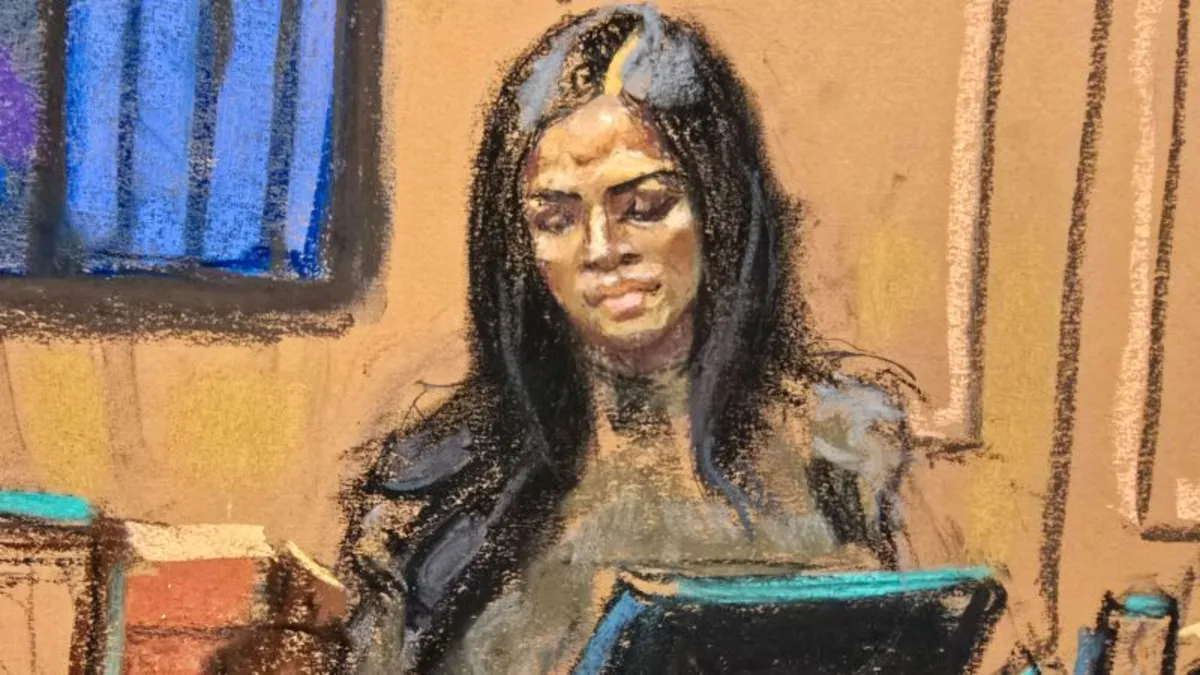
Cassie Ventura, the former girlfriend of music mogul Sean “Diddy” Combs, provided emotionally charged and at times graphic testimony this week, shedding light on her tumultuous relationship with the hip-hop mogul. Ventura's statements were pivotal during Combs' racketeering and sex trafficking trial, revealing disturbing allegations of drug use, violence, and coerced sexual encounters known as “Freak Offs.” As the star witness, Ventura's testimony aimed to support prosecutors' claims that Combs not only trafficked her but also orchestrated a wider criminal enterprise involving associates.
Throughout her testimony, Ventura recounted a series of harrowing experiences, including threats and an alleged rape, which she stated were part of her relationship with Combs. Legal analysts suggest that Ventura’s testimony serves as a critical foundation for the prosecution's argument that Combs led a criminal organization. While the defense acknowledged Combs' violent past with romantic partners, they contended that consent was present in the sexual encounters, emphasizing that evidence of domestic violence does not equate to the federal crimes he is charged with.
As the trial unfolds, legal experts question whether Ventura's lengthy testimony will be sufficient to convince the jury of Combs' guilt on five counts of racketeering conspiracy, sex trafficking, and transportation to engage in prostitution. While prosecutors continue to call additional witnesses, Ventura's testimony is deemed foundational. Areva Martin, a legal analyst, stressed that Ventura is not the only witness in this case, which is crucial for building a compelling argument against Combs.
In her testimony, Ventura detailed the organization of the “Freak Offs,” indicating that Combs' staff provided necessary materials such as baby oil and condoms. When supplies ran low, Ventura testified that staff would be dispatched to restock. These encounters occurred in various locations, including hotels in major cities like New York, Miami, and Los Angeles, as well as at their residences. Ventura claimed that Combs instructed her to find and hire escorts for these events, with payments ranging from $1,500 to $6,000, often made in cash.
During her testimony, Ventura revealed a chilling incident from December 2011 when Combs threatened her after learning about her relationship with rapper Kid Cudi. She recounted how Combs claimed to possess incriminating videos of their encounters and threatened violence against both her and Kid Cudi. Such threats, Ventura stated, were part of a pattern of coercion that characterized her relationship with Combs.
Legal analysts emphasize the complexities of proving racketeering and sex trafficking. Prosecutors must establish that a criminal enterprise existed, that it affected interstate commerce, and that Combs engaged in a pattern of racketeering. Some defense attorneys argue that labeling Combs as the head of a criminal enterprise is an overreach, suggesting that his actions stemmed from personal issues rather than a structured organization.
To secure a conviction for sex trafficking, prosecutors must demonstrate that Ventura and other alleged victims did not give genuine consent and were coerced into sexual activities. Ventura described her participation in the “Freak Offs” as mandatory, highlighting her fear and uncertainty about her autonomy in those situations. She testified that Combs frequently used videos of these encounters as leverage to control her.
After nearly 20 hours of testimony, Ventura concluded her statements, with the trial poised to continue next week. Additional witnesses, including fellow musicians and friends, are expected to provide further insight into Combs' alleged misconduct. As the case unfolds, the prosecution aims to establish a narrative of coercion and exploitation, while the defense seeks to portray the relationship as consensual, highlighting the complexities of consent and power dynamics.
As this high-profile trial progresses, the legal implications of the testimony and the definition of consent will be central themes in determining the outcome of Sean Combs' case.